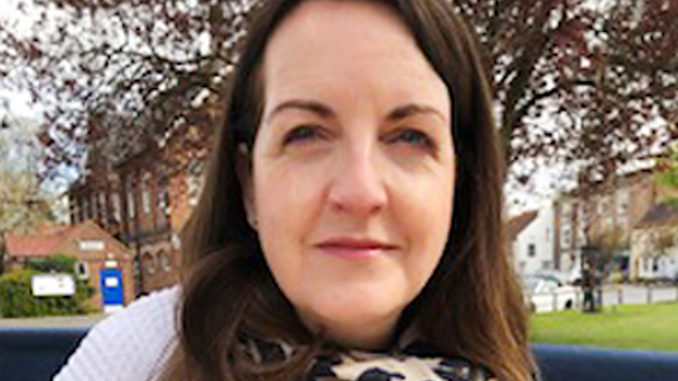
A brain tumour patient from Thirsk is raising awareness about a deadly cancer that has caused more deaths for children and adults under the age of 40 than any other cancer.
To mark Brain Tumour Awareness Month, Nicolette Jones, who was diagnosed with a grade 3 Astrocytoma brain tumour, is sharing her story in a bid to start a conversation around brain tumours and urge everyone to get their symptoms checked.
Nicole, 55, was rushed to The James Cook University Hospital in July 2021 with a seizure.
An MRI scan revealed a right frontal lesion tumour in her brain, which can hinder the ability to walk and lead to difficulty with sight and speech and weakness on one side of the body.
Following initial treatments, Nicole underwent an awake craniotomy surgery – a type of procedure performed on the brain while you are awake and alert.
As the tumour was near the part of her brain which controls her vision, movement and speech, she had to go through the nerve-wracking procedure.
The specialist team debulked (surgically removed) most of the tumour during the surgery and diagnosed her with grade 3 astrocytoma – a malignant form of brain cancer, which is a fast-growing cancer with no cure.
The Thirsk native was devastated by the sudden diagnosis and felt “scared” and “sick”.
Her diagnosis meant she was unable to undertake day-to-day activities such as driving a car and was suffering from cognitive difficulties – which meant she was no longer able to work.
Although the diagnosis has been completely life changing, Nicole is trying to maintain a positive outlook and has been inspired to raise awareness of brain tumours in the region.
She said: “I miss my independence at times but have found time to enjoy art classes and mindfulness which I didn’t do before the tumour, both of which have helped keep me sane.
“I have also started volunteering at the library which has given me a purpose and have met some wonderful people though the Grey Matters group at James Cook Hospital.”
She and her husband have raised hundreds of pounds for the Brain Tumour Charity through several fundraising initiatives.
Macmillan cancer nurse specialist Susan Ellis said: “There are a lot of different types of brain tumours but sadly, none of them are curable and any treatment is given with the hope of keeping people as stable as possible for as long as possible.
“Grades 3 and 4 are classed as high-grade malignant tumours, with 4 being the most aggressive with particularly poor outcomes.
“Although Nicole is doing well now she will have to live with the side effects and restrictions that her diagnosis has caused.
“Over three years, our trust has seen a steady rise in brain tumour cases, which is very concerning, and we hope Nicole’s story inspires others to get their symptoms checked.”
Symptoms of a brain tumour can vary depending on the exact part of the brain affected. Common symptoms include headaches, seizures, persistently feeling sick and mental or behavioural changes.
Talking about her time spent in the hospital, Nicole added: “I am glad to say that I have had the best treatment at the hospital and every department has been very supportive. They have listened to me with patience and treated me with respect.
“I would urge anyone who is unsure about their symptoms to contact their GP as soon as possible and get them checked.”


Be the first to comment